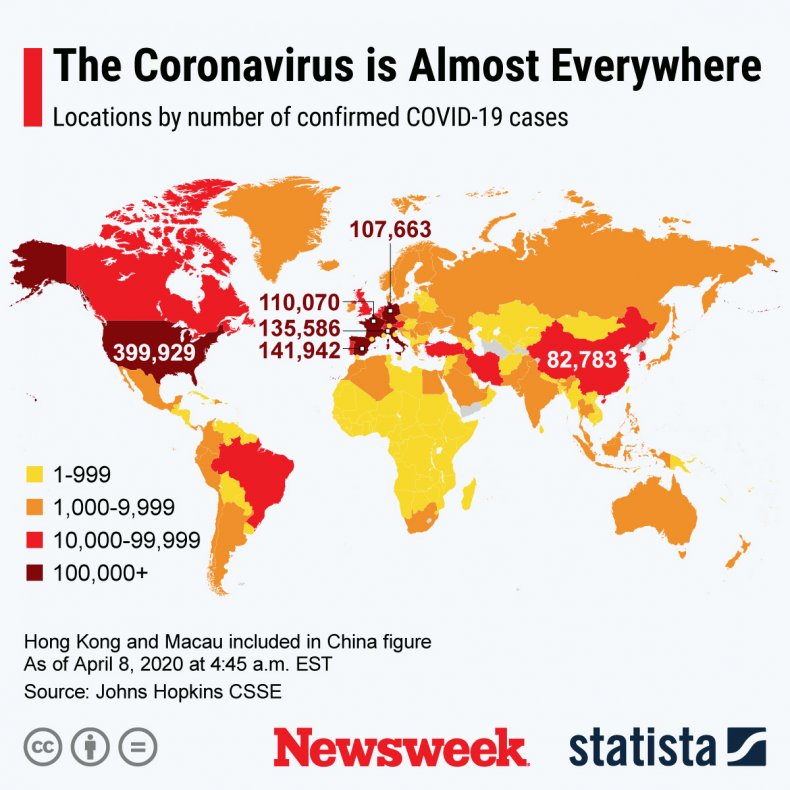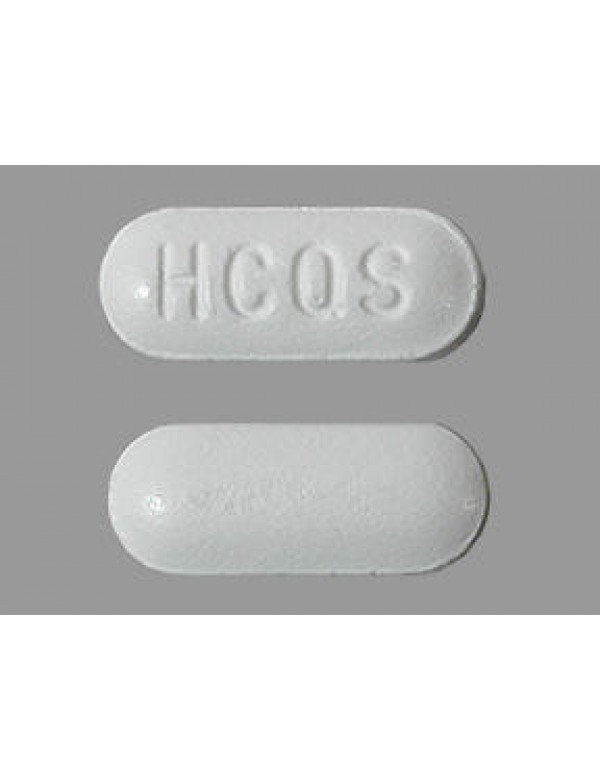French Hospital Stops Hydroxychloroquine Treatment for COVID-19 Patient Over Major Cardiac Risknewsweek.com
A hospital in France has had to stop an experimental treatment using hydroxychloroquine on at least one coronavirus patient after it became a “major risk” to their cardiac health.
The University Hospital Center of Nice (CHU de Nice) is one of many hospitals trialing hydroxychloroquine in COVID-19 patients. It announced it had been selected for the trial on March 22. A statement from the hospital said it was testing four experimental treatments, one of which included hydroxychloroquine. It hoped to establish its effectiveness and side effects of this and the other treatments being tested.
In an interview with the French daily newspaper Nice-Matin, Professor Émile Ferrari, the head of the cardiology department at the Pasteur hospital in Nice, said the side effects had already been identified, with some patients having to stop treatment because of the risk posed.
He said electrocardiogram recordings of patients involved with the trial were being constantly monitored. An ECG measures electrical activity in the heart, and represents this on a graph as a QT interval. Ferrari said these recordings are interpreted and, if anomalies are reported, treatment is stopped.
Asked if this had happened yet, he said: “Yes, from the start of the trial. Thanks to this ECG follow-up, we highlighted the major risks of a very serious accident in a patient, and the treatment was immediately stopped.”
The potential cardiac side effects of hydroxychloroquine were highlighted by the Mayo Clinic at the end of March. An article on its website said the drug has the potential to lead to sudden cardiac death in some patients. In a small number of patients it has the potential to lead to a prolonged QTc , which can result in an abnormal heart rhythm.
Hydroxychloroquine, Mayo Clinic said, blocks one of the channels that controls the heart’s electrical recharging systems. “This interference increases the possibility that the heart’s rhythm could degenerate into dangerous erratic heart beats, resulting ultimately in sudden cardiac death.”
In a statement, Michael J. Ackerman, a Mayo Clinic genetic cardiologist, said: “Correctly identifying which patients are most susceptible to this unwanted, tragic side effect and knowing how to safely use these medications is important in neutralizing this threat.”
- CDC Hydroxychloroquine Prescription Advice Removed From Website
- U.S. Entering ‘Peak Death Week’ in Coronavirus Pandemic
- FDA Says There’s a Shortage of Hydroxychloroquine and Chloroquine
Like the CHU in Nice, the Mayo Clinic cardiologists say there should be guidance on monitoring a person’s QTc through ECGs in order to identify patients at increased risk of the potential COVID-19 treatment.
“Right now, it is the Wild West out there, ranging from doing no QTc surveillance whatsoever and just accepting this potential tragic side effect as part of ‘friendly fire,’ to having ECG technicians going into the room of a patient with COVID-19 daily, exposing them to coronavirus and consuming personal protective equipment,” Ackerman said.
Ferrari said that hydroxychloroquine on its own presents only a small cardiac risk. However, when given alongside the antibiotic azithromycin, with which it is being prescribed in combination for the treatment of coronavirus, the risk increases. He said that for some patients being treated with these drugs, “the remedy is more harmful than the disease itself.”
In an interview with NBC, Ackerman said he was concerned about how little attention this potential side effect of hydroxychloroquine was being given, even among health professionals.
“What disturbed me the most was when I was seeing not political officials say these medications are safe but seeing on the news cardiologists and infectious disease specialists say [hydroxychloroquine] is completely safe without even mentioning this rare side effect. That’s inexcusable,” Ackerman said.
The French trial and the side effect seen follows similar experiences in Sweden. Magnus Gisslén at Sahlgrenska University Hospital, told the Gothenburg Post they had stopped the treatment for COVID-19 patients following reports of problems at other hospitals.
“There were reports of suspected more serious side effects than we first thought,” he is quoted as saying. “We cannot rule out serious side effects, especially from the heart, and it is a hard-dosed drug. The fact that some seriously ill COVID-19 patients have acute heart problems has raised concerns that chloroquine may be harmful to some patients.”
The graphic below, provided by Statista, illustrates the spread of COVID-19 around the globe.

Centers for Disease Control and Prevention Advice on Using Face Coverings to Slow Spread of COVID-19
- CDC recommends wearing a cloth face covering in public where social distancing measures are difficult to maintain.
- A simple cloth face covering can help slow the spread of the virus by those infected and by those who do not exhibit symptoms.
- Cloth face coverings can be fashioned from household items. Guides are offered by the CDC.
- Cloth face coverings should be washed regularly. A washing machine will suffice.
- Practice safe removal of face coverings by not touching eyes, nose, and mouth, and wash hands immediately after removing the covering.
World Health Organization advice for avoiding spread of coronavirus disease (COVID-19)
Hygiene advice
- Clean hands frequently with soap and water, or alcohol-based hand rub.
- Wash hands after coughing or sneezing; when caring for the sick; before, during and after food preparation; before eating; after using the toilet; when hands are visibly dirty; and after handling animals or waste.
- Maintain at least 1 meter (3 feet) distance from anyone who is coughing or sneezing.
- Avoid touching your hands, nose and mouth. Do not spit in public.
- Cover your mouth and nose with a tissue or bent elbow when coughing or sneezing. Discard the tissue immediately and clean your hands.
Medical advice
- Avoid close contact with others if you have any symptoms.
- Stay at home if you feel unwell, even with mild symptoms such as headache and runny nose, to avoid potential spread of the disease to medical facilities and other people.
- If you develop serious symptoms (fever, cough, difficulty breathing) seek medical care early and contact local health authorities in advance.
- Note any recent contact with others and travel details to provide to authorities who can trace and prevent spread of the disease.
- Stay up to date on COVID-19 developments issued by health authorities and follow their guidance.
Mask and glove usage
- Healthy individuals only need to wear a mask if taking care of a sick person.
- Wear a mask if you are coughing or sneezing.
- Masks are effective when used in combination with frequent hand cleaning.
- Do not touch the mask while wearing it. Clean hands if you touch the mask.
- Learn how to properly put on, remove and dispose of masks. Clean hands after disposing of the mask.
- Do not reuse single-use masks.
- Regularly washing bare hands is more effective against catching COVID-19 than wearing rubber gloves.
- The COVID-19 virus can still be picked up on rubber gloves and transmitted by touching your face.

